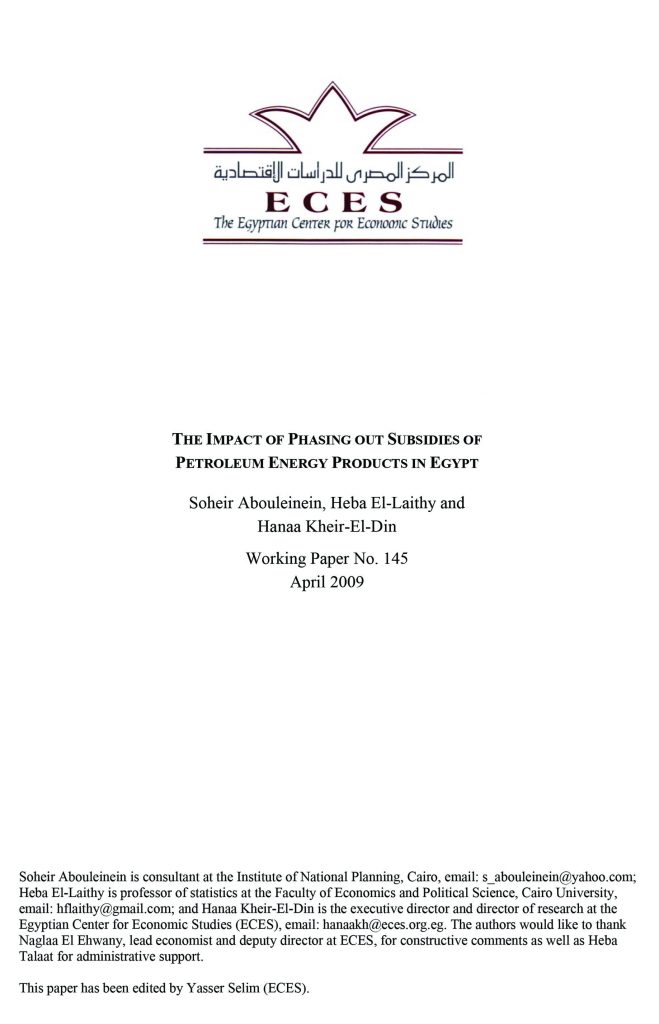Abstract:
This study assesses the expected short- and medium-run impact of phasing out subsidies of energy products in Egypt. To capture this impact on the most relevant economic variables and sectors, the study conducts an input-output analysis and a computable general equilibrium (CGE) model based on an estimated social accounting matrix (SAM) for the Egyptian economy for 2006/2007. The structure of the SAM will enable an explicit presentation of the impact of energy products, especially those receiving the greater amounts of subsidy. Households are also disaggregated according to expenditures level, so that effects of different policies on poor households can be determined. Following a brief overview of the main approaches to energy pricing, international experience in mitigating the impact of energy pricing reform and characteristics of the petroleum sector in Egypt, the study assesses the relative effect of each petroleum product under different scenarios reflecting various levels of increases in energy prices. The results of CGE analysis—which measures the overall effects of phasing out subsidies subject to alternative scenarios in the medium run (five years projections)—are then considered. They include estimation of the effect of raising prices of various energy products on relevant macroeconomic variables, namely, prices, investment, growth rates of GDP and of sectoral value added, deficit in government budget, resource gap and welfare of different expenditure groups of urban and rural households.

